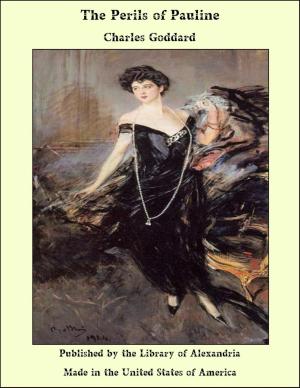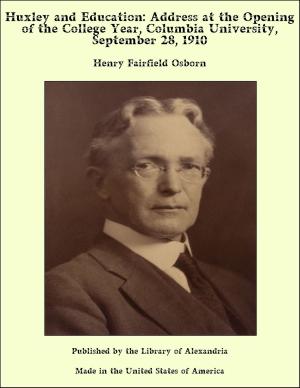The Queen's Daughters in India
Nonfiction, Religion & Spirituality, New Age, History, Fiction & Literature| Author: | Elizabeth Wheeler Andrew & Katharine C. Bushnell | ISBN: | 9781465611666 |
| Publisher: | Library of Alexandria | Publication: | March 8, 2015 |
| Imprint: | Language: | English |
| Author: | Elizabeth Wheeler Andrew & Katharine C. Bushnell |
| ISBN: | 9781465611666 |
| Publisher: | Library of Alexandria |
| Publication: | March 8, 2015 |
| Imprint: | |
| Language: | English |
This little book is written under a deep sense of obligation to the womanhood of the world, but more especially under a sense of duty to God. A group of women of the British aristocracy have lifted their voices in advocacy of licensed vice; and their sycophants and admirers in England and America are either re-echoing their plea or excusing their conduct. The plea is made primarily for India, but incidentally for all Christendom, and every effort is being put forth, openly or covertly, to contaminate public sentiment on this point. In five States of America, in a little over a year, the attempt has been made to secure legislation for the compulsory periodical examination of women; and a strong organization exists on both sides of the water to promote this infamous object. Under these conditions it is a matter of grave moment that certain secular, temperance, and religious periodicals which would have sounded a clear note of warning six months ago, are today being deceived. They print the outrageous falsehoods that represent India as having become a menace to the health of England because of the abolition of brothel slavery in that country. Excuses are made for the shallow-brained sophistry of those who pretend that the compulsory periodical examination of women can be divorced from the moral debasement of women, and as though such compulsory examination were something quite unlike the notorious Contagious Diseases Acts. High titles and famous names are quoted as a warrant for advocating the iniquity; and certain men are being exalted as though famous temperance advocates, who are not themselves total abstainers, and who are well-known public advocates of licensed fornication. Thus is introduced into philanthropic movements of the present day an element of fatal moral confusion, as though a person who boldly defies the principles of ordinary decency in one direction could be received as a trusted and efficient promoter of decency along another line; as though a man could be relied upon as an advocate and apostle of that of which he is not an example. We do not doubt that some of the persons who do these things are well-intentioned; but they expend their benevolence on the wolf and forget the lamb. They would win others to play with them on the asp’s nest. We have determined on our knees before God that those who advocate the compulsory periodical examination of women shall do so knowing what it means, and knowing also that their friends and neighbours understand what is being advocated. We offer no apology for our plainness of speech; to employ smooth language and obscure phrases in the present crisis would be to trifle with a deadly enemy—to toy with the Indian cobra.
This little book is written under a deep sense of obligation to the womanhood of the world, but more especially under a sense of duty to God. A group of women of the British aristocracy have lifted their voices in advocacy of licensed vice; and their sycophants and admirers in England and America are either re-echoing their plea or excusing their conduct. The plea is made primarily for India, but incidentally for all Christendom, and every effort is being put forth, openly or covertly, to contaminate public sentiment on this point. In five States of America, in a little over a year, the attempt has been made to secure legislation for the compulsory periodical examination of women; and a strong organization exists on both sides of the water to promote this infamous object. Under these conditions it is a matter of grave moment that certain secular, temperance, and religious periodicals which would have sounded a clear note of warning six months ago, are today being deceived. They print the outrageous falsehoods that represent India as having become a menace to the health of England because of the abolition of brothel slavery in that country. Excuses are made for the shallow-brained sophistry of those who pretend that the compulsory periodical examination of women can be divorced from the moral debasement of women, and as though such compulsory examination were something quite unlike the notorious Contagious Diseases Acts. High titles and famous names are quoted as a warrant for advocating the iniquity; and certain men are being exalted as though famous temperance advocates, who are not themselves total abstainers, and who are well-known public advocates of licensed fornication. Thus is introduced into philanthropic movements of the present day an element of fatal moral confusion, as though a person who boldly defies the principles of ordinary decency in one direction could be received as a trusted and efficient promoter of decency along another line; as though a man could be relied upon as an advocate and apostle of that of which he is not an example. We do not doubt that some of the persons who do these things are well-intentioned; but they expend their benevolence on the wolf and forget the lamb. They would win others to play with them on the asp’s nest. We have determined on our knees before God that those who advocate the compulsory periodical examination of women shall do so knowing what it means, and knowing also that their friends and neighbours understand what is being advocated. We offer no apology for our plainness of speech; to employ smooth language and obscure phrases in the present crisis would be to trifle with a deadly enemy—to toy with the Indian cobra.















